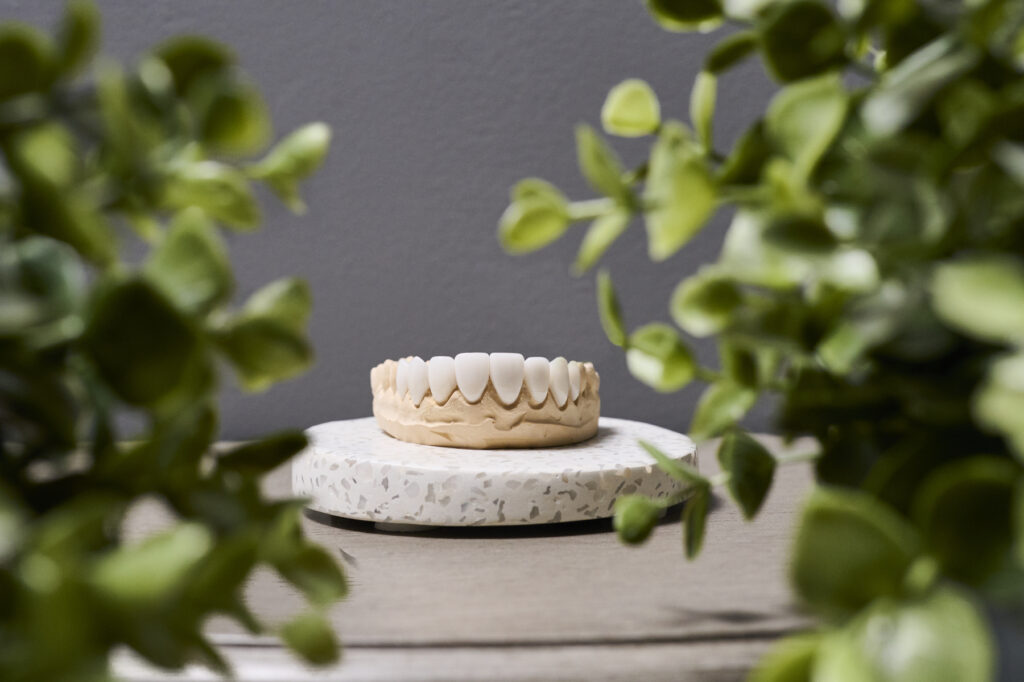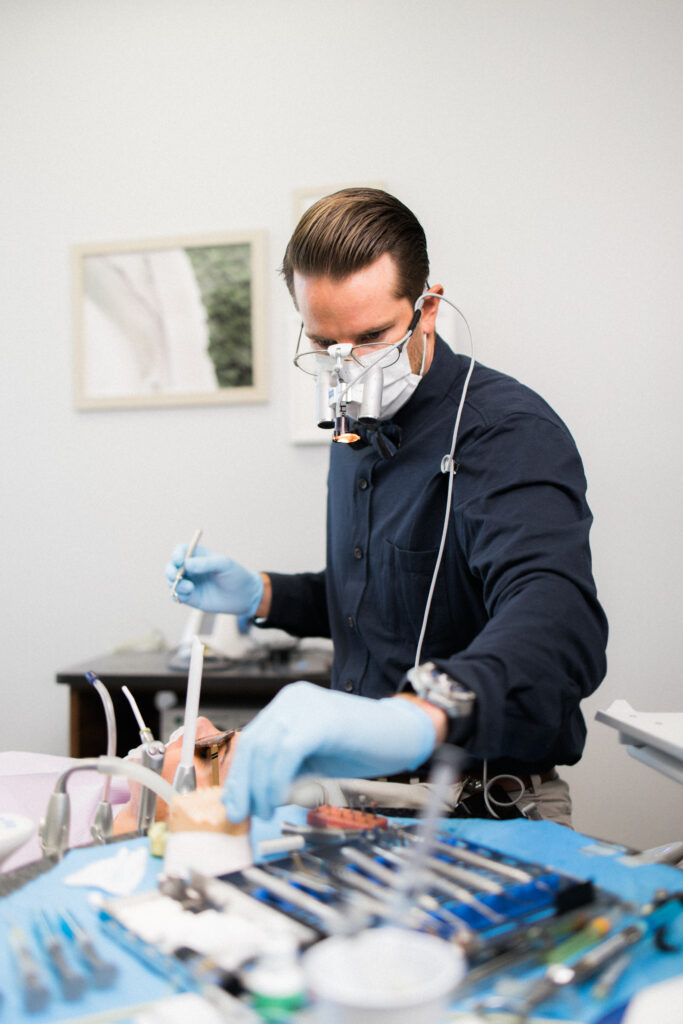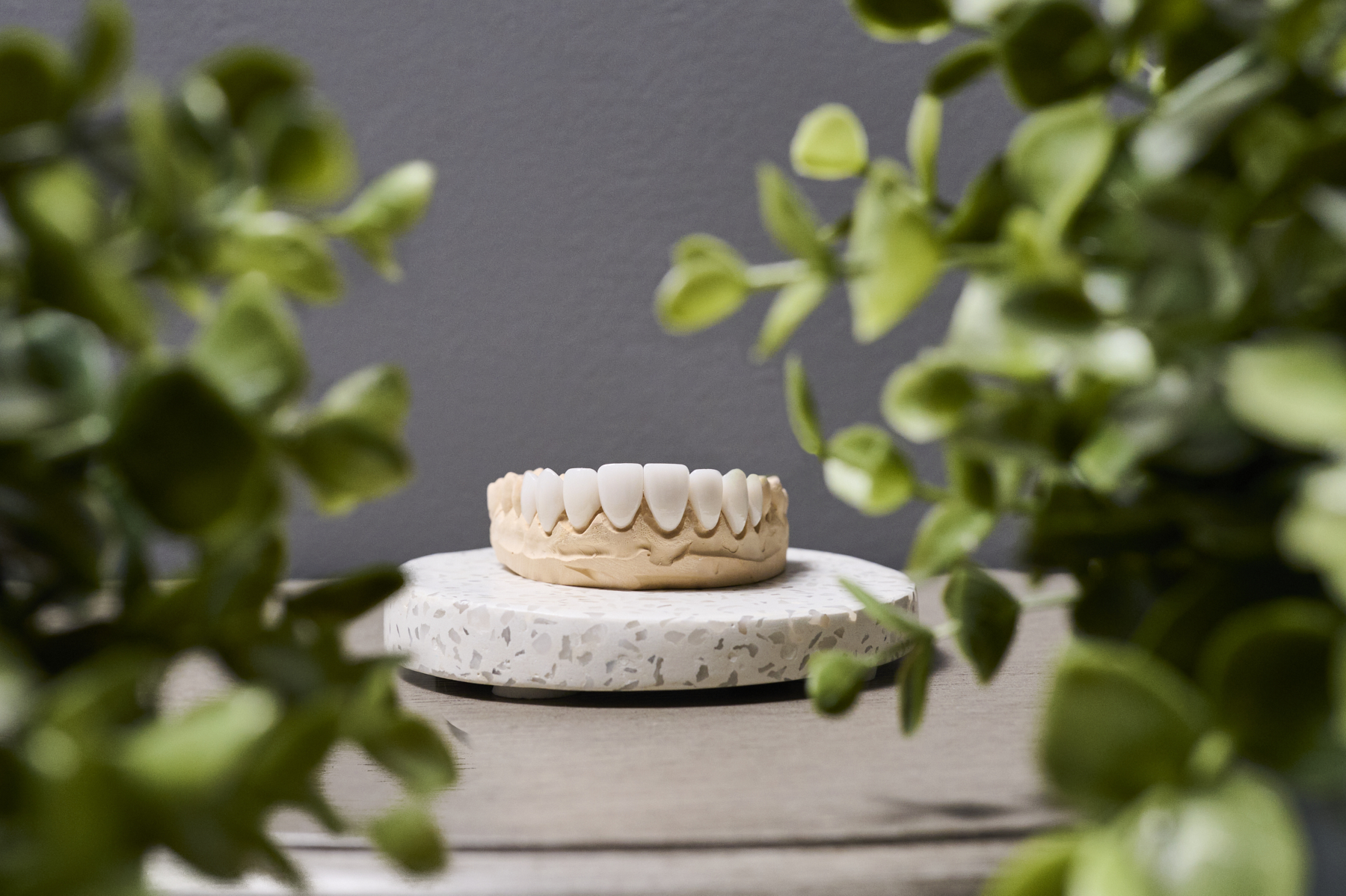Veneers have become a popular choice for those seeking to enhance their smile through cosmetic dentistry. Despite their popularity, many people wonder about the potential downsides, such as “Are veneers bad for your teeth?” In this blog post, we’ll explore what veneers are, how they’re made, their benefits, and address concerns related to their impact on oral health.

What Are Veneers?
We’ve already explained in-depth what veneers are, and you can reference our What Are Veneers blog for a thorough explanation. In summary, veneers are thin shells of porcelain or composite resin that are custom-made to fit over the surface of your teeth. They are primarily used to improve the appearance of teeth by altering their shape, color, size, or length.

How Are Veneers Made?
There are two notable differences to be aware of: porcelain, which is considered the gold standard veneer, and there are composite resin veneers.
Porcelain veneers are hand-made by a dental ceramist from a mold of your teeth. Porcelain is favored for its stain-resistant properties and ability to mimic the light-reflecting qualities of natural teeth.
Composite resin veneers can be built up directly on your teeth or crafted in a lab. Composite veneers are made from a tooth-colored resin that is applied layer by layer to your teeth.

How Are Veneers Placed?
The veneer placement process typically involves three main steps:
- Preparation: A dentist removes a thin layer of enamel from your teeth to accommodate the veneer.
- Customization: An impression of your teeth is taken and sent to a lab, where your veneers are crafted.
- Application: Once ready, the veneers are bonded to your teeth using dental cement.
Benefits of Veneers
Veneers provide a significant aesthetic improvement by correcting discoloration, chips, and minor misalignments. Porcelain veneers, in particular, are durable and resist staining better than natural teeth. They offer a conservative alternative to more invasive procedures, requiring less removal of the tooth structure compared to dental crowns. Looking to improve your smile, we list out 10 benefits of a smile makeover in our recent blogs.

Longevity of Veneers
One of the main questions Dr. Hales hears from his patients is, how long do veneers last? Porcelain veneers can last anywhere from 20-30 years, while composite resin veneers typically last about 5 to 7 years. Their longevity can be extended with proper care, including routine dental check-ups and good oral hygiene practices.
How Veneers Can Improve Function
Veneers not only enhance the appearance of teeth but also add strength and resilience, much like natural tooth enamel, thus improving the overall functionality of the teeth. They can help correct minor bite issues and make chewing easier by aligning the teeth more favorably.
Concerns and Considerations
The application of veneers involves the permanent alteration of teeth by removing a portion of the enamel, which can lead to increased tooth sensitivity and vulnerability to decay if not properly cared for. While veneers are durable, they are not invincible and can be damaged by hard foods or impacts. The edge of the veneer may irritate or cause inflammation in the gum tissue if not properly fitted. Regular dental hygiene practices are essential to maintain veneers, similar to caring for natural teeth. Additionally, individuals with significant tooth decay, gum disease, or extensive restorations might not be ideal candidates for veneers. Here are quick overviews of the main concerns we have been asked during a consultation with Dr. Hales.
- Tooth Sensitivity: Removing enamel can cause temporary sensitivity to temperature and pressure.
- Oral Health Risks: Poor fitting veneers can lead to gum disease or tooth decay if oral hygiene is not maintained.
- Irreversibility: The process is generally irreversible since it involves removing a portion of tooth enamel.
Conclusion
Veneers are not inherently bad for your teeth; they are a safe and effective method for improving dental aesthetics and function. However, they do require a commitment to proper care and maintenance. It is crucial for anyone considering veneers to have a detailed discussion with a cosmetic dentist to fully understand their specific dental needs and the implications of getting veneers.
Final Thoughts
Veneers can provide a beautiful and long-lasting solution to many cosmetic dental issues. By understanding both the benefits and the obligations that come with them, patients can make an informed decision about whether veneers are the right choice for their dental health and aesthetic goals.






